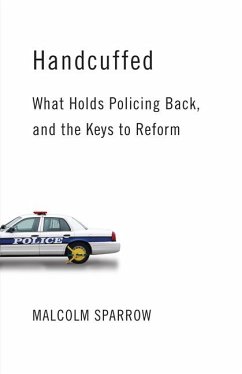The police shooting of an unarmed young black man in the St. Louis suburb of Ferguson, Missouri, in August 2014 sparked riots and the beginning of a national conversation on race and policing. Much of the ensuing discussion has focused on the persistence of racial disparities and the extraordinarily high rate at which American police kill civilians (an average of three per day). Malcolm Sparrow argues that other factors--critical flaws in the more general development of police theory and practice over the last twenty-five years--have substantially contributed to the current crisis in American policing. Sparrow shows how the reform ideas of community and problem-solving policing, adopted as conventional policing wisdom by the 1990s, have failed to thrive. Many departments give these ideas mere lip-service and still define their success by narrow quantitative metrics--tallying up traffic tickets issued, or arrests made for petty crimes. They focus closely on official but unreliable crime statistics while exercising inadequate >Sparrow says police must escape their narrow focus and perverse metrics and turn back to making public safety and public cooperation their primary goals. Police departments, he argues, are fundamentally in the business of risk-control and harm-reduction, with profound implications for policing strategy, methods, measurements, analysis, and the nature of community interactions.








